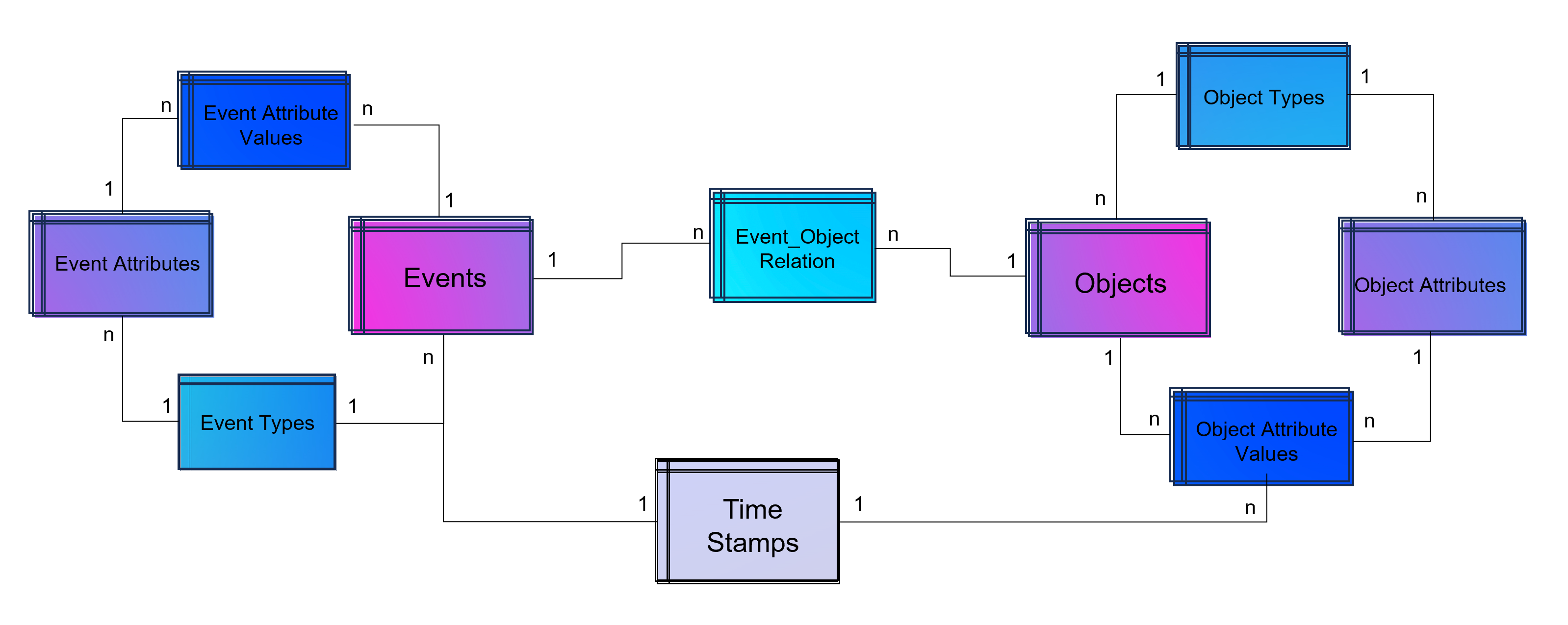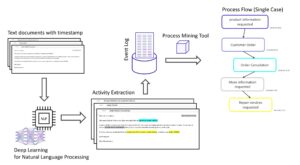In the realm of data-driven process analysis, Process Mining has become commonplace in larger companies, often used alongside Business Intelligence (BI) and AI. The detailed data it provides from process traces is essential for various AI applications.
The move towards powerful cloud platforms enables large-scale data storage and flexible usage, benefiting Process Mining, BI, and AI. Big Data Architectures like the Data Lakehouse and Data Sharing Models like Data Mesh facilitate a unified database for numerous data products.
The Event Log Data Model is critical in Process Mining, analogous to an iceberg where the visible part represents visual process analysis and the larger, submerged part is the essential data basis. This model requires data extraction, connection, and modeling from source systems. Object-centric Process Mining is an advanced method for analyzing complex, interconnected business processes, focusing on the relationships between different entities like orders, items, and invoices.
Enhancements in data modeling have led to object-centric event logs, storing events and related attributes, with a focus on n-to-m relationships between events and objects. This approach is based on relational database normalization considering all objects an event can be related to.

Process Mining, deeply related to BI and Data Analytics, can be seen as a BI sub-discipline. Central data models, particularly in Data Mesh architectures in the cloud, offer consistency and scalability, improving Data Governance and Management.
Process Mining requires more detailed data than traditional BI, supporting data science applications like process runtime or failure predictions. Centralized data models for Process Mining facilitate collaboration and quick decision-making, adaptable to changing business needs. All other analytical applications will gain profit from these models.
Celonis is the first tool that excels natively in handling object-centric process mining, but other tools like Signavio, UiPath, and Fluxicon Disco are also effective tools for doing data-driven analysis. Even if tools do not support object-centric data models directly, using central data modelling e.g. on a data mesh, classic event logs can be easily generated and provided to any tool of Process Mining, BI or Data Science.
If you are about to introduce or optimize a process mining system for your organization, let us advise you independently! We know almost every solution on the market and can match your technical requirements and organizational needs with the available tools and analytical methods in a neutral manner. DATANOMIQ is your guarantee of success for independent Business Intelligence, Data Science and Process Mining!
 DATANOMIQ is the independent consulting and service partner for business intelligence, process mining and data science. We are opening up the diverse possibilities offered by big data and artificial intelligence in all areas of the value chain. We rely on the best minds and the most comprehensive method and technology portfolio for the use of data for business optimization.
DATANOMIQ is the independent consulting and service partner for business intelligence, process mining and data science. We are opening up the diverse possibilities offered by big data and artificial intelligence in all areas of the value chain. We rely on the best minds and the most comprehensive method and technology portfolio for the use of data for business optimization.



